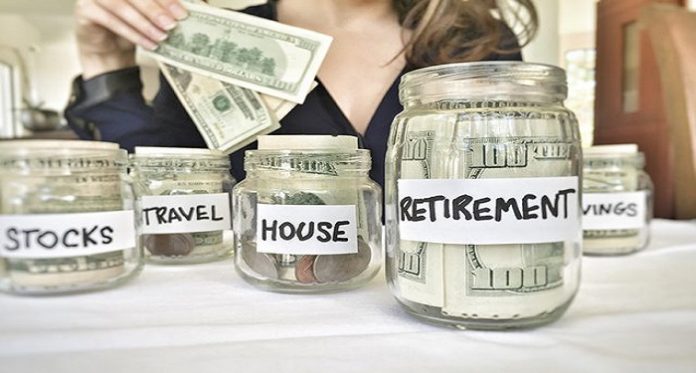So, which comes first, the chicken or the egg? That’s a question for the ages. While researchers think they’ve come up with the answer, the reality is the answer they found only served to generate more questions.
Similarly, when it comes to whether saving or paying off debt is more important; this too turns out to be a question whose answers engender more questions.
With that said, the best solution for you is somewhere in here — so read on.
Table of Contents
Saving First
If you’re in a situation in which you have no money set aside at all, for any purpose, paying off debt first is a mistake. You should always have, at minimum, enough liquid cash to cover three to six months of living expenses. Some experts are now recommending as much as eight. If you have no money on hand and something unexpected happens, you’re going to have to borrow to deal with it, which will only serve to dig a deeper hole.
Further, if your job offers a payroll savings plan, into which your employer will contribute if you save, jump on that free money right away. Anytime someone is willing to give you money, (and you don’t have to give them a body part, your spouse or one of your offspring in exchange) take it. Delaying saving until you pay off debt could short you out of a lot of compound interest your money could have earned in the interim, leaving you less money upon which to retire.
Paying Off Debt First
The most pressing reason to pay off debt first is interest. Financial obligations continue to grow every month you have them. If we’re talking credit card debt, it could be expanding at the rate of as much as 24 percent annually. Investments into which you can buy capable of a rate of return that high are scarce. Thus, saving can be counterproductive in those instances. Any gains you’ll make with the money you put away will be consumed by the interest you’ll pay on your debts.
Also, certain types of debt impose relatively low-interest rates, so you can afford to put cash away while you pay them down. Mortgages, car loans, and student loans fall into this category. In some cases, there are also tax benefits to having the debt — though you should examine them carefully to be certain you qualify. These also tend to be longer-term agreements, so paying them down while neglecting savings could put you on the cusp of retirement with no cash put away.
Further, if you’re in a situation in which your debt is threatening to get out of hand, trying to pay it off could wind up crippling your financial health irrevocably. In such circumstance, reaching out to a company like Freedom Debt Relief is a good idea. They have solutions that could make your debt easier to resolve.
The Bottom Line?
So, which comes first; savings or debt? Like the chicken and the egg, the true answer is it depends.
If you have no money saved at all, you’d best start saving right away. Again, you’d have to resort to borrowing if you were suddenly confronted with a significant expense with no cash on hand. This could completely erase the gains you made when you attacked your debt aggressively.
Meanwhile, if you have high-interest debt and some cash put away for a rainy day, attacking the debt as aggressively as you can is a good move. If you’re somewhere in between, examine the situation carefully to figure out what makes the most long-term financial sense and act accordingly.




